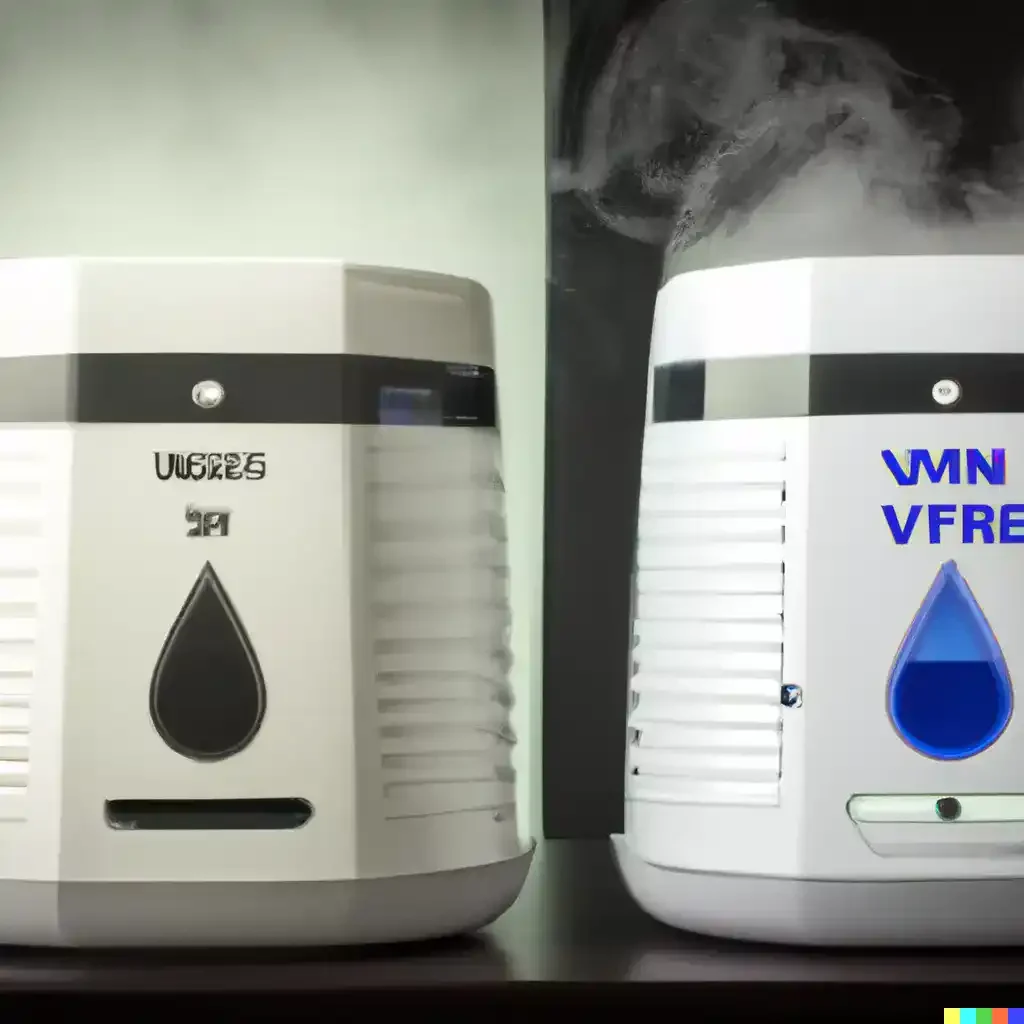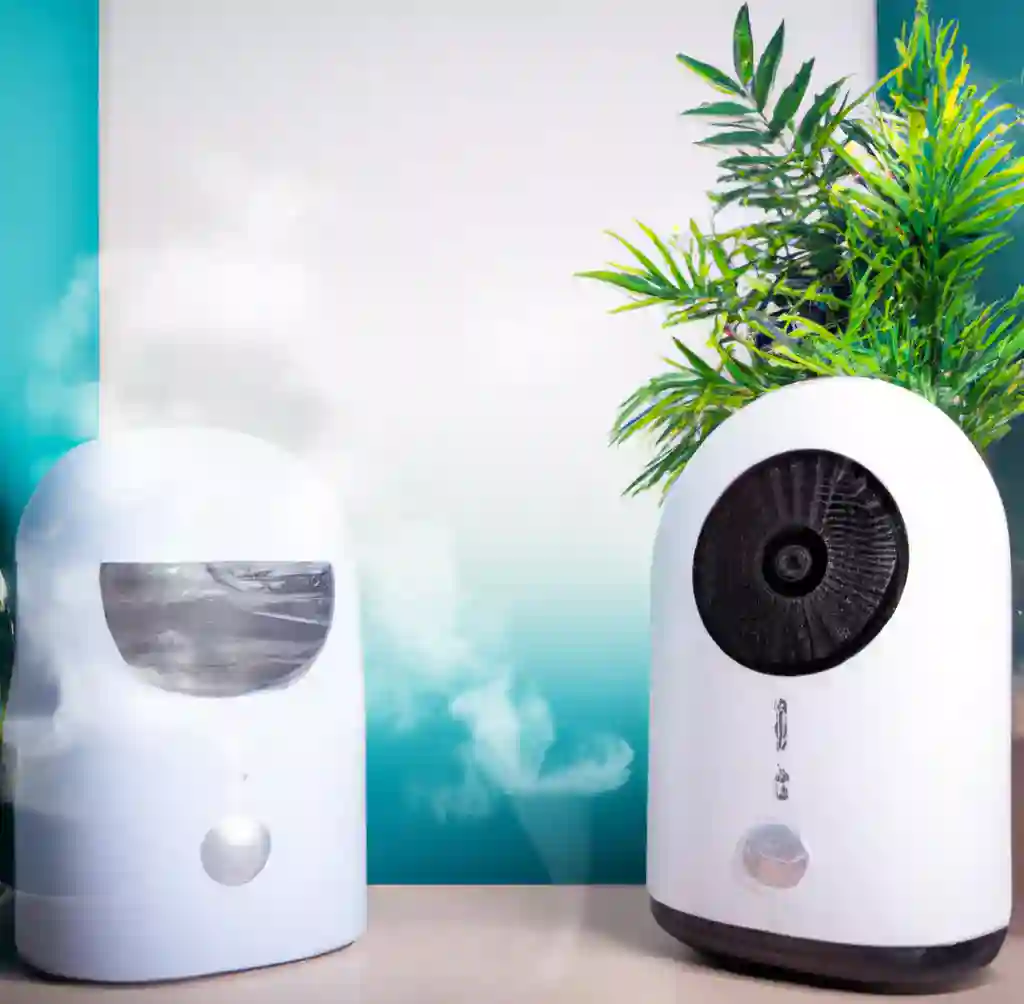Nebulizer Vs Humidifier: Learn the key differences and find out which device is best for your respiratory needs. Consult with a healthcare professional for guidance.
In this blog post, we will be discussing the differences between nebulizers and humidifiers, two devices that are often used to improve respiratory health and indoor air quality.
While both nebulizers and humidifiers are used to address issues related to the respiratory system, they work in different ways and serve different purposes.
Understanding the distinctions between these two devices can help you make informed decisions about which one is right for you or your loved ones.
What is a Nebulizer?
A nebulizer is a medical device that converts liquid medication into a fine mist, which can be inhaled through a mouthpiece or mask. It works by using a compressor to create an airflow that turns the liquid medication into a mist.
The mist is then inhaled through a mouthpiece or mask, allowing the medication to reach the airways and lungs.
Nebulizers are often used to deliver medications to people with respiratory conditions, such as asthma, COPD (chronic obstructive pulmonary disease), and bronchitis.
They can be especially helpful for people who have difficulty using inhalers or have trouble coordinating their breathing with the use of an inhaler.
Nebulizers are typically prescribed by a healthcare provider and are used as directed by a healthcare professional or as instructed in the product’s user manual.
It is important to follow the recommended dosage and frequency of use as prescribed by a healthcare provider.
In summary, a nebulizer is a medical device that converts liquid medication into a fine mist, which can be inhaled to reach the airways and lungs. It is often used to treat respiratory conditions and is prescribed by a healthcare provider.
What is a Humidifier?
A humidifier is a device that increases the humidity, or moisture, in the air. It is often used to improve indoor air quality and alleviate symptoms of dry air, such as dry skin, sinus irritation, and dry throat.
Humidifiers can be especially helpful during the winter months when indoor air tends to be drier due to the use of heating systems.
There are several types of humidifiers, including cool mist, warm mist, and ultrasonic humidifiers. Cool mist humidifiers use a wick, filter, or evaporative pad to absorb water and release it into the air as a cool mist.
Warm mist humidifiers heat the water to create a warm mist, which can be helpful for people with cold or flu symptoms.
Ultrasonic humidifiers use high-frequency vibrations to create a fine mist that is released into the air.
To use a humidifier, you simply fill the water tank, turn it on, and adjust the humidity level as desired. Some humidifiers also have additional features, such as adjustable mist output, automatic shut-off, and built-in air purifiers.
The benefits of using a humidifier include improved indoor air quality, relief from dry air-related symptoms, and potentially even improved sleep.
It is important to regularly clean and maintains your humidifier to prevent the growth of mold and bacteria.
In summary, a humidifier is a device that increases the humidity in the air to improve indoor air quality and alleviate dry air-related symptoms.
There are several types of humidifiers, including cool mist, warm mist, and ultrasonic humidifiers, and they are easy to use by simply filling the water tank and turning them on.
Humidifiers can provide a number of benefits, including improved indoor air quality and relief from dry air-related symptoms.
Nebulizer vs Humidifier: What’s the difference?
As previously discussed, nebulizers and humidifiers are two devices that are often used to improve respiratory health and indoor air quality.
However, they work in different ways and serve different purposes.
One main difference between nebulizers and humidifiers is the way they deliver their respective therapies.
Nebulizers deliver liquid medications as a fine mist that can be inhaled through a mouthpiece or mask, while humidifiers increase the humidity in the air by releasing a mist or vapor.
Another difference is the conditions that they are used to treat. Nebulizers are often prescribed by healthcare providers to deliver medications to people with respiratory conditions, such as asthma, COPD, and bronchitis.
Humidifiers, on the other hand, are used to improve indoor air quality and alleviate dry air-related symptoms, such as dry skin, sinus irritation, and dry throat.
In terms of when to use a nebulizer versus a humidifier, it is important to consult with a healthcare professional for guidance. A healthcare provider can help determine the best course of treatment based on your specific needs and health condition.
In summary, nebulizers and humidifiers are two different devices that are used to improve respiratory health and indoor air quality. Nebulizers deliver liquid medications as a fine mist, while humidifiers increase the humidity in the air.
Nebulizers are often prescribed to treat respiratory conditions, while humidifiers are used to alleviate dry air-related symptoms.
It is important to consult with a healthcare professional for guidance on which device may be most appropriate for your needs.
Conclusion: Nebulizer vs Humidifier
In conclusion, nebulizers and humidifiers are two devices that are often used to improve respiratory health and indoor air quality.
However, they work in different ways and serve different purposes. Nebulizers are medical devices that convert liquid medication into a fine mist, which can be inhaled to reach the airways and lungs.
They are often prescribed by healthcare providers to treat respiratory conditions such as asthma, COPD, and bronchitis.
Humidifiers, on the other hand, increase the humidity in the air to improve indoor air quality and alleviate dry air-related symptoms.
There are several types of humidifiers, including cool mist, warm mist, and ultrasonic humidifiers.
It is important to understand the differences between nebulizers and humidifiers in order to make informed decisions about which device is best for your needs.
If you are unsure which device is most appropriate for you or your loved ones, it is important to consult with a healthcare professional for guidance.
They can help determine the best course of treatment based on your specific needs and health condition.
FAQs: Nebulizer vs Humidifier
Here are some common questions and answers about nebulizers and humidifiers:
Q: Can nebulizers and humidifiers be used together?
A: Yes, nebulizers and humidifiers can be used together. Some people find it helpful to use a nebulizer to deliver medications and a humidifier to add moisture to the air, especially during the winter months when indoor air tends to be dry.
However, it is important to consult with a healthcare professional for guidance on whether using both devices is appropriate for your specific needs and health condition.
Q: Can I use a nebulizer for a cold or flu?
A: It is not typically recommended to use a nebulizer to treat a cold or flu, as these conditions are usually caused by a virus and are not effectively treated with medication.
However, if you have a secondary bacterial infection, such as pneumonia, a healthcare provider may prescribe an antibiotic to be delivered via nebulizer.
It is important to consult with a healthcare professional for guidance on the most appropriate treatment for your specific condition.
Q: How do I clean and maintain my nebulizer or humidifier?
A: It is important to regularly clean and maintain your nebulizer or humidifier to prevent the growth of mold and bacteria. Here are some general guidelines for cleaning and maintaining these devices:
- Follow the specific cleaning instructions provided in the user manual for your nebulizer or humidifier.
- Use a mild detergent and warm water to clean the device and its components.
- Rinse and dry the device and its components thoroughly after cleaning.
- Replace the filters or wicks according to the manufacturer’s recommendations.
- Do not use vinegar or other harsh chemicals to clean the device.
- Empty and refill the water tank daily and clean the tank with mild detergent and warm water at least once a week.
Q: Can I use tap water in my nebulizer or humidifier?
A: It is generally recommended to use distilled water in nebulizers and humidifiers to prevent the growth of bacteria and minerals that can build up over time.
If you do not have access to distilled water, it is generally safe to use tap water as long as it is properly treated and maintained.
However, it is important to follow the specific guidelines provided in the user manual for your nebulizer or humidifier and to consult with a healthcare professional for guidance.






Pingback: Can You Put Weed Oil in a Humidifier: Pros & Cons